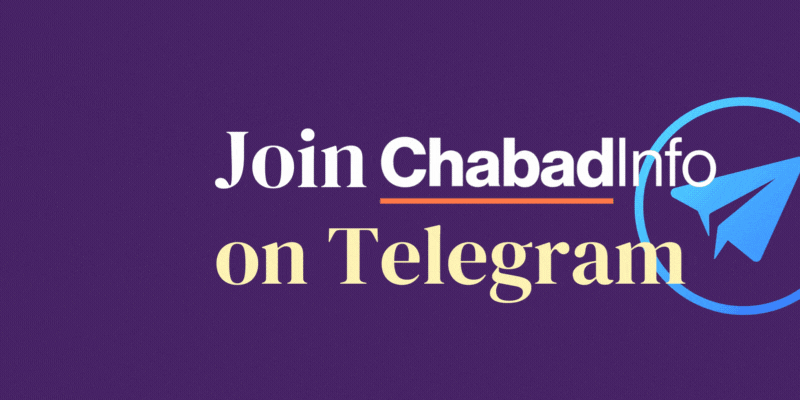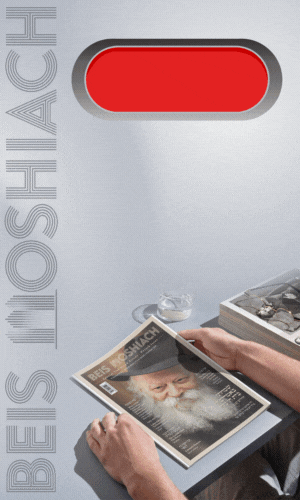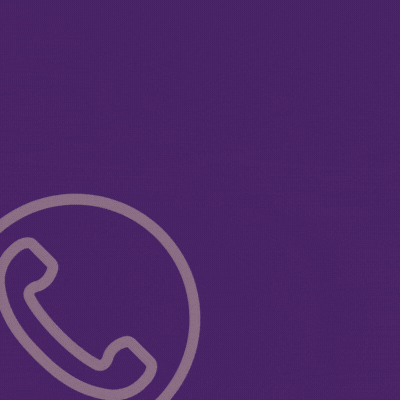10 Stirring Life-Lessons From My Mentor, ‘Rav Adin’
Rabbi Adin Even-Israel Steinsaltz, lovingly known to his students as “Rav Adin,” was recognized as a “once-in-a-millennium scholar,” who revolutionized the world with his trailblazing translation and commentary of the entire Talmud, Bible, Maimonides’ Mishneh Torah, the Tanya, his authorship of many books on Jewish mysticism, philosophy, and sociology, his educational institutions, and his life mission to “let my people know” • Full Story
Pinchas Allouche/The Algemeiner
Across the globe, people from all walks of life came together on Monday to mark the one-year anniversary of the passing of my beloved mentor, Rabbi Adin Even-Israel Steinsaltz of saintly memory.
Rabbi Even-Israel Steinsaltz, lovingly known to his students as “Rav Adin,” was recognized as a “once-in-a-millennium scholar,” who revolutionized the world with his trailblazing translation and commentary of the entire Talmud, Bible, Maimonides’ Mishneh Torah, the Tanya, his authorship of many books on Jewish mysticism, philosophy, and sociology, his educational institutions, and his life mission to “let my people know.”
Personally, I miss Rav Adin terribly. For close to 30 years, my mentor and I spoke regularly. He guided my every step, illuminated my every pathway, molded my every thought, and inspired my every action. And now, ever since his passing a year ago, our world is so much dimmer, and our lives are so much lonelier.
Nonetheless, and in spite of the profound pain and streaming tears, his spiritual presence continues to permeate our beings, his voice continues to ring in our ears, his eternal teachings continue to lead our every way, and his marching orders continue to propel us to “do more and more and more.”
To encapsulate the genius of Rav Adin in words is impossible. Still, here is a humble attempt to provide a glimpse into ten lessons of our beloved friend and leader.
- Life’s Most Important Question
A few years ago, during a visit with Rav Adin, I asked him: “In your eyes, what is life’s most important question?”
Without skipping a beat, he replied: “And then what?” (In Hebrew, veaz ma?)
He then explained his statement: “You see, it is easy to fly into a passion. But what happens after the passion is gone? And then what? What is left from that which we were so passionate about? Weddings nowadays resemble Hollywood-style sound and light shows. But then what? Can our marriage continue to grow even when the sound of ‘here comes the bride’ has been replaced with the sound of a baby crying? Can our love continue to blossom, even when the romantic scene of ‘you may kiss the bride’ has been replaced with the unavoidable reality of bills that need to be paid?”
- Seven Billion People Will Care About Your Actions, Not Your Feelings
Rav Adin once called me aside after noticing my despondence during my years of study at his Makor Chaim high school in Jerusalem.
“The problem is that you focus on your feelings too much,” he mentioned. “Maybe that’s why you seem so despondent.”
“So, what should I do?” I retorted.
“Instead of focusing on your emotions, focus on your deeds,” he replied.
With his characteristic wit, he concluded: “Remember, only your mother truly cares about your feelings, but seven billion people will care about your actions — so focus more on your good deeds, each and every day.”
- The Difference Between a Wise Man and a Fool
A few years ago, Rav Adin asked me, out of the blue: “What do you think is the difference between a fool and a wise man?”
I did not know what to say. So, he replied in my stead: “The difference is simple: a wise man keeps the important issues of life important, and makes sure that the trivial issues remain trivial. The fool does the opposite. For him, important issues become the trivial ones, while he considers the trivial issues to be important.”
- Don’t Focus Too Much on the Results
Following the failure of a project that I had launched a few years ago, I called Rav Adin to express my frustration and seek his advice.
After listening carefully, he replied with his characteristic smile: “Pinny, you focus too much on the results. But you forget that you were appointed to work; not to reap the fruits of your work. It sounds like you put in the right amount of work, and that you did what you could. Now, let G-d take care of the results…”
“It’s like planting trees,” he said. “Sometimes, we plant a tree, and we think that we’ll be able to enjoy its fruits within a year or two. But some trees, like the olive tree, take a few years to grow and produce fruits. Yet, once those trees grow, they turn into very strong trees that then never stop producing an abundance of fruits.”
- Ask Not “How Much Have I Accomplished”; Ask “How Much More Can I Still Accomplish”
In an unforgettable address to our 10th-grade class, Rav Adin mentioned: “The main problem is that you ask yourself ‘how much have I accomplished thus far,’ instead of asking yourself, ‘how much more can I accomplish.’ You see, it’s not that ‘the sky is not the limit.’ Rather, the sky is the launchpad of your life.”
“Doing your best is not good enough. I know this may not sound like a recipe for an easy and comfortable life, but it is my expression of great hope. And it comes from my belief that people do not just have stomachs, but they also have wings with which to fly.”
“I would want for my students to take upon themselves what may seem like an undefined resolution, yet it is, nonetheless, very concrete. I would call this resolution: ‘one step forward.’ Wherever you are in your life journeys, please, I ask you, take one step forward.”
- The Power of Now
A few years ago, I asked Rav Adin which of his 80+ books was his favorite. His answer baffled me, and it taught me volumes on how to appreciate the now.
“It is the book I am working on right now,” he mentioned.
Similarly, Rav Adin once lamented the mindset of many in our generation who focus so much on the future that they forget to live the present.
“We devote so much time to the ‘before’ and ‘after’ [stages of life] that we no longer have time to experience the thing itself. When we are in the ‘before’ stage, we think about what will be; in the ‘after’ stage, we think about how things were. Either way, there is nothing to make us hold on to the present. … But the focal point of our thinking is not life for the sake of the morrow, but rather life today. What matters now is what is now.”
- The Best Way to Face Challenges
I’ll never forget this moment.
It was a late afternoon in 2001. I was visiting a Jerusalem hospital when I suddenly bumped into Rav Adin in the hospital’s elevator.
“Good afternoon, Rav Adin!” I greeted him. “What are you doing here?”
“I’m going to study the Talmud,” he replied with a playful smile.
“To study the Talmud? In this hospital? Are there no better places to study?” I retorted.
His wise response still reverberates in my mind: “Well, the doctors here have to connect me to a dialysis machine for a few hours, and in the meantime, I’ll study the Talmud.”
At that moment, I had learned that my beloved mentor suffered from a genetic condition from a very young age, which required him to be connected to a dialysis machine each and every month, for approximately three hours. But what stunned me most is not the fact that he never shared this with me and his close students. Rather, it was the idea that Rav Adin never saw this monthly medical treatment as a challenge. For this giant of man, it was an opportunity to study the Talmud for three hours, without interruption. And even as his disease threatened to limit him, he felt free and limitless.
His approach taught me an invaluable lesson for life: We all face challenges, big or small. We all suffer from diseases, physical or mental. We all endure pain, temporary or permanent. But it is the way we choose to address them that makes all the difference.
- Don’t Just Say Thank You; Do Thank You
I recall how my beloved mentor — who despised flowery words and superficial shows — once told me that “the world would be a much more beautiful place if people would do thank you, instead of just saying thank you.”
When I asked him what he meant, he replied: “Say you just gave a poor man some money. Now, if he is polite, he will probably say ‘thank you.’ But, imagine if this poor man would learn from you and, in return for your act of kindness, he would also do a good deed. Wouldn’t that help our world much more than his words of gratitude?”
- The Power of a Smile
Rav Adin once shared with me that when he was a young seven-year-old boy, he found himself in an overloaded bus, surrounded by a group of beautiful girls, who were just a few years older than him.
His words were so sweet: “As I was observing them as a phenomenon of nature, one of these girls turned to me and gave me a big smile. I had never seen such a beautiful smile. I remember thinking to myself that it felt like I was walking in a dark street, when, all of a sudden, a ray of dazzling sunshine came out.”
“I don’t think that this girl and I ever saw each other again. But I will never forget her smile. And I will never forget how this beautiful girl came out of her circle, to brighten a little boy’s day with the unique gift of a smile that G-d had blessed her with.”
“Sometimes, that’s all it takes to fulfill our purpose: To smile at someone else, with our own unique smiles. Try it. You won’t regret it.”
- How to Achieve Lasting Happiness
In 2014, I had the privilege of escorting Rav Adin to a conference in Chicago. There, he was asked about his view on achieving happiness. His words of truth still reverberate in my mind:
“There are so many people all over the world that are searching for happiness, but they don’t really know what they want because they can’t define happiness. But we forget that happiness is a form of self-fulfillment. When a person does what he has to do, what he should do — not necessarily what he wants to do, because what I want to do is, possibly, to sit and do nothing — then he has a sense of fulfillment, and that engenders happiness. And to achieve fulfillment, I have to be in agreement and fully in tune with my unique purpose and with what I am supposed to do — sometimes as a husband or a parent, or a worker … whatever that may be.”
“So if we wish to be happy, we first ought to be listening to that small, thin voice inside of each of us, which tells us what we are uniquely supposed to do.”
Rabbi Pinchas Allouche is the head Rabbi at Congregation Beth Tefillah in Scottsdale, Arizona.
122
Join ChabadInfo's News Roundup and alerts for the HOTTEST Chabad news and updates!










































